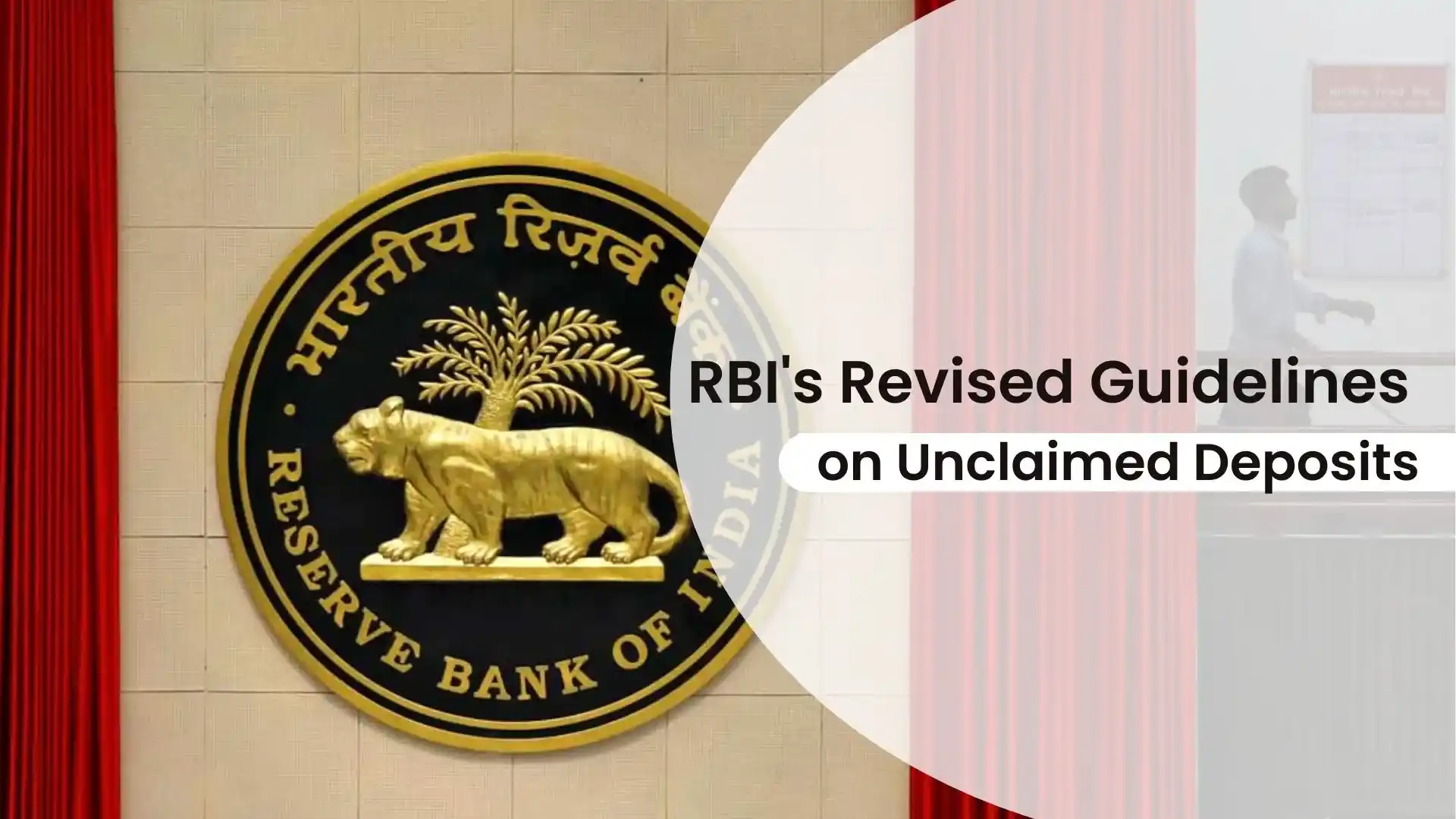
Enhancing Financial Security: RBI's Revised Guidelines on Unclaimed Deposits
In a bid to fortify financial security and streamline the process of reclaiming unclaimed deposits, the Reserve Bank of India (RBI) has taken a significant stride by revising its guidelines on Inoperative Accounts and Unclaimed Deposits. This latest move from the apex banking authority repeals 20 earlier circulars and establishes a comprehensive framework for banks to follow, ensuring the rightful owners of dormant accounts and unclaimed deposits are identified and reunited with their funds. The revamped instructions, set to take effect from April 1, 2024, come as a complement to the ongoing efforts by financial institutions and the RBI to minimize the quantum of unclaimed deposits in the banking system.
The revised instructions issued by the RBI encompass a range of crucial aspects, each aimed at strengthening the overall system and expediting the return of unclaimed deposits to their rightful owners. Here's a closer look at the key provisions:
Classification of Accounts and Deposits:
The first step involves banks categorizing accounts and deposits as either inoperative or unclaimed, depending on the circumstances. This initial classification sets the stage for subsequent actions and measures to be implemented.
Periodic Review:
The RBI emphasizes the importance of periodic reviews for such accounts and deposits. This involves a systematic examination to ensure that the status of accounts and deposits is accurately maintained, and any necessary actions are taken promptly.
Fraud Prevention Measures:
Recognizing the potential risks associated with dormant accounts and unclaimed deposits, the guidelines prescribe measures to prevent fraud. Banks are expected to implement robust mechanisms to safeguard against any unauthorized access or misuse of funds in these accounts.
Grievance Redressal Mechanism:
A crucial aspect of the revised guidelines is the establishment of a grievance redressal mechanism. This ensures that complaints related to inoperative accounts and unclaimed deposits are addressed promptly and efficiently, providing a resolution mechanism for aggrieved parties.
Tracing Customers and Nominees/Legal Heirs:
To facilitate the reactivation of accounts, banks are directed to take proactive steps in tracing customers of inoperative accounts and locating their nominees or legal heirs. This involves a meticulous process to establish contact and ensure the necessary documentation is completed for reactivating accounts.
Settlement of Claims and Closure Process:
The guidelines lay down a comprehensive process for the settlement of claims and closure of accounts. This involves a structured approach to ensure that the funds are appropriately disbursed or the accounts closed in accordance with regulatory requirements.
By providing detailed and specific guidelines on each of these aspects, the RBI aims to create a robust framework that enables banks to effectively manage inoperative accounts and unclaimed deposits. The instructions not only enhance the efficiency of the banking system but also instill confidence among customers regarding the safety and security of their funds.
QuikDox, a leading player in the digital will-making space, recognizes the importance of such regulatory interventions in ensuring the rightful transfer of assets and wealth to heirs. As the RBI's revised guidelines come into effect, Quikdox stands as a reliable partner for individuals seeking to organize their financial affairs and secure their legacy through seamless digital will creation.
In conclusion, the RBI's proactive approach in revising guidelines on inoperative accounts and unclaimed deposits reflects a commitment to safeguarding the interests of depositors. The move aligns with the broader industry efforts to create a transparent and secure financial ecosystem. As Quikdox continues to empower individuals in the realm of digital will-making, these regulatory developments underscore the importance of staying informed and proactive in managing one's financial legacy


Comments
Submit Your Comments